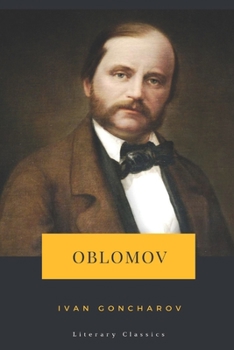Oblomov
The unusual shape of Russian literary history has been the source of numerous controversies. Three major and sudden breaks divide it into four periods-pre-Petrine (or Old Russian), Imperial, post-Revolutionary, and post-Soviet. The reforms of Peter I (the Great; reigned 1682-1725), who rapidly Westernized the country, created so sharp a divide with the past that it was common in the 19th century to maintain that Russian literature had begun only a century before. The 19th century's most influential critic, Vissarion Belinsky, even proposed the exact year (1739) in which Russian literature began, thus denying the status of literature to all pre-Petrine works. The Russian Revolution of 1917 and the Bolshevik coup later in the same year created another major divide, eventually turning "official" Russian literature into political propaganda for the communist state. Finally, Mikhail Gorbachev's ascent to power in 1985 and the collapse of the U.S.S.R. in 1991 marked another dramatic break. What is important in this pattern is that the breaks were sudden rather than gradual and that they were the product of political forces external to literary history itself. Ivan Aleksandrovich Goncharov, (born June 18 June 6, old style], 1812, Simbirsk now Ulyanovsk], Russia-died Sept. 27 Sept. 15, O.S.], 1891, St. Petersburg), Russian novelist and travel writer, whose highly esteemed novels dramatize social change in Russia and contain some of Russian literature's most vivid and memorable characters. Oblomov, novel by Russian writer Ivan Goncharov, published in 1859. The work is a powerful critique of 19th-century Russia, contrasting aristocrats with the merchant class and condemning the feudal system. Its hero, Oblomov, is a generous but indecisive young nobleman who loses the woman he loves to a vigorous, pragmatic friend. A perpetual daydreamer, he lives his life in his mind and spends his time in bed. From this character derives the Russian term oblomovshchina, epitomizing the backwardness, inertia, and futility of 19th-century Russian society. See also superfluous man.
Format:Paperback
Language:English
ISBN:B08KBV5D2G
ISBN13:9798691656774
Release Date:January 1
Publisher:Independently Published
Length:190 Pages
Weight:0.63 lbs.
Dimensions:0.4" x 6.0" x 9.0"
Customer Reviews
0 rating





